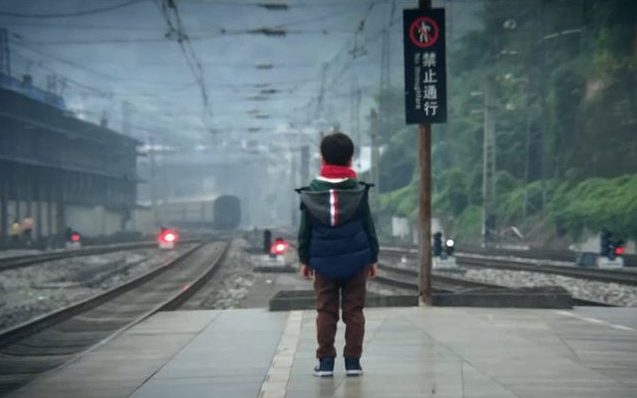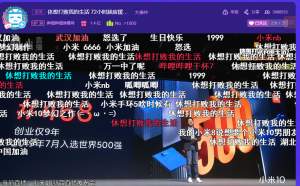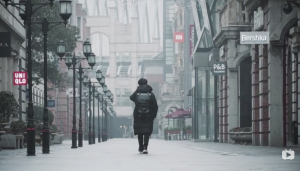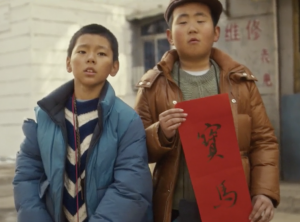
“Three Minutes” by Apple was a lauded example of a brand film
Branded films require a delicate balance between telling a compelling story and promoting a brand’s commercial interests. In some cases, the story may fail to feature the brand in a significant way, leaving viewers struggling to make a strong connection between what they see on screen and the company behind it. More commonly, however, the brand is over-emphasized, lending an overly “commercial” quality to the viewing experience.
After gaining a lot of attention in China in the early part of this decade, the trending position of the branded mini-movie dropped due to competing opportunities for brands to integrate into television, social media, and other forms of entertainment. But the format appears to be experiencing a resurgence as more brands seek to stand out and appeal to younger audiences.
Unlike the earlier generation of brand films, which were most vigorously championed by luxury brands and automakers seeking to marry the quality of their products with the heightened effect of the cinematic medium, the current boom extends to a broader range of consumer goods aiming to create strong brand values with high-quality sponsored content that is entertaining in its own right.
Here we highlight notable examples that have received attention in China over the past decade, showing the range of effective work in the branded film genre. For more, see this week’s special case study and video pick, both looking at timely holiday films, and our archive of selected films from previous weeks.
Prada (2010)
In one of the first China-focused luxury films, the Italian fashion house commissioned artist Yang Fudong to create “First Spring” (一年之际), a wordless, historically ambiguous nine-minute piece set in Shanghai. Shot in 35mm black and white film, it bears an avant garde aesthetic reminiscent of Yang’s five-part epic, “Seven Intellectuals in a Bamboo Forest” (2003-2007), and has been considered as much an art film as an advertisement.
Chevrolet Cruze (2010)
One of the most ambitious branded film efforts brought automaker Chevrolet into a partnership with Youku and China Film Group to develop a series of 11 films by up-and-coming directors for release online. (At a time when original content was sorely lacking from Chinese video platforms.) By far the most popular of these films was the comedy duo Chopsticks Brothers’ 42-minute-long “Old Boys” (老男孩), a nostalgic story that deeply resonated with Chinese millennials, which was viewed 86 million times in the first week of its release. The Chevrolet Cruze brand is hardly present in the film, however, as the brand’s goal was more to associate itself with creativity among the voices of China’s younger generation.
Johnnie Walker (2011)
Part of an aggressive effort to expand into the Chinese market, the Scottish distiller worked with acclaimed director Jia Zhangke to produce a twelve-part series called “Yulu” (语路, “words of a journey”). Each short film profiles a Chinese public figure from a variety of fields, ranging from environmentalist Zhao Zhong to artist Xu Bing and property developer Pan Shiyi. Johnnie Walker parent Diageo reported that the campaign garnered 20 million video views over the course of eight weeks.
Range Rover Evoque (2011-2014)
The British automaker combined the action and crime movie genres and the mediums of film and animation in “The Evoque Effect” (极光之城), an eight-part series released in 2011 to promote its Evoque to younger, online-oriented consumers. The series combined elements of comic books and detective story suspense to draw viewer interest.
Volkswagen (2013)
Volkswagen raised the bar for short branded action films with Keanu Reeves playing the Bugatti-driving villain in 2013’s “Extreme Pursuit” (极速无间). The 16-minute movie also stars actor-musicians Jing Boran and Tian Yuan and martial artist Tiger Chen, along with five Volkswagen brands: VW, Audi, Bentley, Bugatti, and Lamborghini, each paired with different characters in the film.
SK-II (2016-2019)
The luxury Japanese skincare brand boldly tackled a major social issue with a series of campaigns addressing the cultural prejudice faced by China’s “leftover women” — the pejorative term for those who remain single past the arbitrary age of 27.
In 2016, the film “Marriage Market Takeover” showed single women confronting their parents’ demands to settle down. The following year, “Expiry Date” showed women labeled with tattoos that became more visible as they aged, and this year the P&G-owned brand revisited the subject with a Chinese New Year film, “Meet Me Halfway,” which brought women and their families to meet in the middle, both literally and figuratively.
In addition to sparking serious discussion on social media and elsewhere, the original 2016 campaign received numerous international awards, including a Golden Lion at Cannes for business citizenship/corporate responsibility.
Pepsi (2011-2017)
Pepsi began a series of Chinese New Year films under the title “Bring the Happiness Back Home” (把乐带回家 ) in 2011, typically featuring celebrities and creatively aligning the holiday narratives of family gatherings with Pepsi products. The most successful of these was the 2017 film that reunited the cast of the hugely popular mid-2000s sitcom “Home With Kids” (家有儿女).
Apple (2018-2019)
With its recent viral Chinese New Year short films, Apple highlighted both the professional quality of iPhone X cameras and their emotional power, capturing a mother’s all-too-brief reunion with her son in a train station (last year’s “Three Minutes” (三分钟), directed by Peter Chan), or the essence of one’s hometown that can’t be left behind (this year’s “The Bucket” (一个桶), directed by Jia Zhangke). The iPhone does not appear in either of these films, but the viewer’s awareness of their role in telling such compelling stories sets up the strong brand message.
Peppa Pig (2019)
The live-action short film “What is Peppa?” (啥是佩奇?) was shot as a trailer for the Alibaba Pictures co-production “Peppa Pig Celebrates Chinese New Year,” and became a must-watch piece in its own right. It details the touching efforts of a rural grandfather to figure out what his city-dwelling grandson was talking about when he said he wanted a “peiqi” (Peppa in Chinese).
The film racked up several hundred million views across streaming media platforms and the Chinese hashtag for #WhatIsPeppa was viewed nearly 1.5 billion times on Sina Weibo soon after its release. It was quite a comeback for the previously banned Peppa, who fell afoul of Chinese authorities in 2018 after being used in subversive internet memes that associated the cartoon pig with gangster culture.






